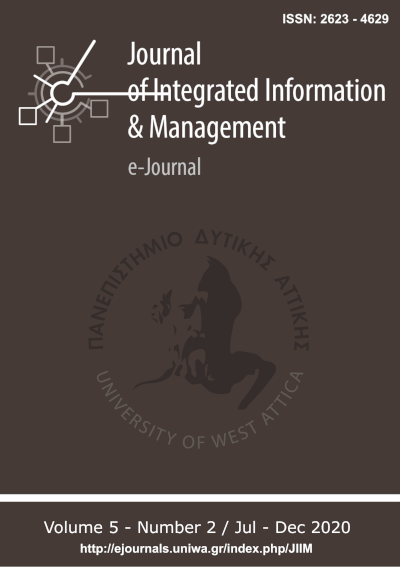Seeking for the evolutionary history of lands based on ontology organized spatiotemporal data and reasoning tools

Abstract
The present study focuses on spatiotemporal historical data organized in an OWL Protégé ontology environment. It aims at exploring the possibilities of using deduction logic tools in correlating alternate names of geographic regions related to time periods and presenting spatiotemporal interconnections. It includes spatial data of local regions and sites of contemporary Greece and Turkey related to Hellenic historical archaeological sites from Neolithic Age to the 19th century.
Purpose: The present study focuses on spatiotemporal historical data organized in an OWLProtégé ontology environment. It aims at exploring the possibilities of using deduction logic tools in correlating alternate names of geographic regions related to time periods and presenting spatiotemporal interconnections.
Design/methodology/approach: Methodology follows the systematic review paradigm and includes the development of a protocol for the following elements. Protocol for the inclusion of different types of entities. Protocol for the ways of standard use and expansion, in this case TNG and AAT vocabularies. Protocol for the description of entities within the ontological framework and finally a set of rules for the selection of vocabularies and authority tools. Literature search was conducted grouped in units to the corresponding protocols and likewise research results were tested per protocol.
Findings: The central idea of this study was the exploitation of embodied Deduction Logic tools in an ontology environment in order to reveal evolutionary history topics, as well as to connect historical monuments to places described by their real then used name apart from their contemporary identification.
Originality/value: The work could have a practical informational application as its ability to connect to google maps and Wikipedia and other linked data can turn it into a useful information tool and a paradigm for cooperation between humanities and computational semantics, leading to the emergence of ‘hidden’ treasures in contexts not studied and exploited yet.
Article Details
- How to Cite
-
Dendrinos, M., Kyriaki-Manessi, D., & Tranta, A. (2024). Seeking for the evolutionary history of lands based on ontology organized spatiotemporal data and reasoning tools . Journal of Integrated Information Management, 5(2), 7–14. Retrieved from https://ejournals.epublishing.ekt.gr/index.php/jiim/article/view/37882
- Section
- Research Articles

This work is licensed under a Creative Commons Attribution-NonCommercial 4.0 International License.
Copyright Notice
Authors who publish with JIIM agree to the following terms:
- Authors retain copyright and grant the journal right of first publication with the work simultaneously licensed under a Creative Commons Attribution Non-Commercial License that allows others to share the work with:
- An acknowledgment of the work's authorship and initial publication in this journal.
- Authors are permitted and encouraged to post their work online (preferably in institutional repositories or on their website) prior to and during the submission process, as it can lead to productive exchanges, as well as earlier and greater citation of published work.





